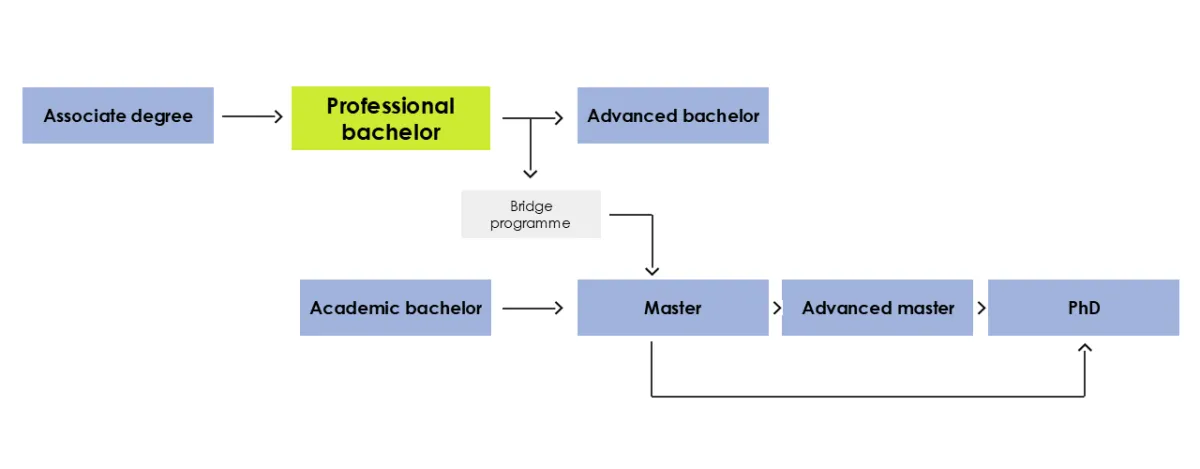Flanders – the northern, Dutch-speaking part of Belgium – has a strong international reputation for high-quality, student-centred higher education. Degrees are recognised across Europe, and all institutions follow the same quality standards under the European Higher Education Area.
 Karel de Grote Hogeschool
Karel de Grote HogeschoolBrusselstraat 45, 2018 ANTWERPEN
T +32 3 613 13 13
E info@kdg.be


